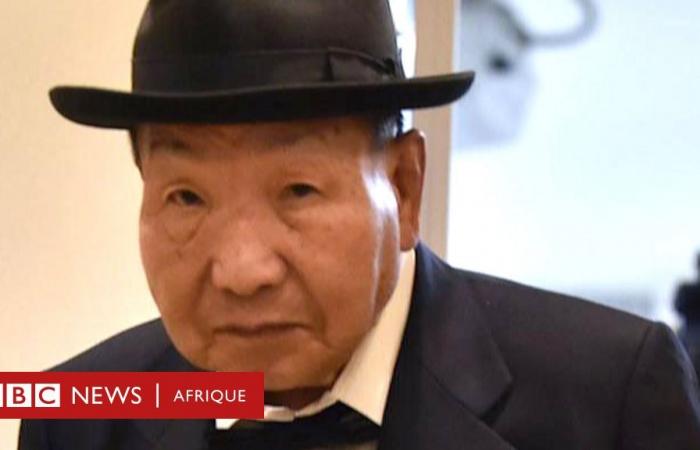Photo credit, Getty Images
- Author, Gavin Butler and Shaimaa Khalil
- Role, BBC News
- Reporting from Singapore & Tokyo
-
4 hours ago
An 88-year-old man, the world’s longest-serving death row inmate, has been acquitted by a Japanese court, which ruled that evidence used against him was fabricated.
Iwao Hakamada, who has been on death row for more than half a century, was convicted in 1968 of murdering his boss, his wife and their two teenage children.
He recently received a retrial, with investigators suspecting he covered up evidence that led to his quadruple murder conviction.
More than half a century on death row, however, took a heavy toll on Hakamada’s mental health, and he was unable to attend the hearing where he was ultimately acquitted.
The Hakamada case is one of Japan’s longest and most famous legal sagas and has attracted intense public interest, with some 500 people lining up for a seat in the Shizuoka courtroom on Thursday.
As the verdict was announced, Mr Hakamada’s supporters outside the court shouted “banzai”, a Japanese exclamation meaning “hurray”.
Hakamada was not present in court, as he had been excused from all hearings due to his deteriorating mental condition.
He has been living under his sister’s guardianship since 2014, when he was released from prison and granted a retrial.
Clothes ‘stained with blood’ in a vat of miso
A former professional boxer, Hakamada was working at a miso processing factory in 1966 when the bodies of his employer, his employer’s wife and two children were found in a house fire in Shizuoka, west of Tokyo. All four had been stabbed to death.
Authorities accused Hakamada of murdering the family, setting fire to their home and stealing 200,000 yen in cash.
Hakamada initially denied robbing and murdering the victims, but later made what he described as forced confessions following beatings and interrogations that lasted up to 12 hours a day.
In 1968 he was convicted of murder and arson and sentenced to death.
Outside the court, Hakamada’s supporters cheered “banzai,” a Japanese exclamation meaning “hurray,” as the verdict was announced.
Photo credit, Getty Images
The decades-long legal saga ultimately revolved around some clothing found in a miso tank a year after Hakamada’s arrest. The clothing, allegedly stained with blood, was used to incriminate him.
However, for years, Hakamada’s lawyers have argued that the DNA found on the clothing did not match his own, making it possible that the items belonged to someone else. Lawyers have also suggested that police may have fabricated the evidence.
Their argument was enough to convince Judge Hiroaki Murayama, who noted in 2014 that “the clothes were not those of the accused.”
“It is unjust to detain the accused any longer, as the possibility of his innocence has become clear to a respectable degree,” Murayama said at the time.
Hakamada was later released and given a retrial.
Due to the length of the legal proceedings, it took until last year for the new trial to begin – and until Thursday morning for the court to deliver its verdict.
While the DNA argument was rejected, the judge found credible another argument by the defense attorneys, namely that the red stains found on the clothes could not be blood because blood would not remain red on clothes after being soaked in miso for a year.
The judge found Hakamada innocent and concluded that key evidence presented by prosecutors was fabricated.
Hakamada’s 91-year-old sister Hideko has been caring for him since his release from prison in 2014.
Photo credit, Getty Images
Decades of detention, much of it in solitary confinement and under constant threat of execution, have taken a heavy toll on Mr. Hakamada’s mental health, according to his lawyers and family.
His 91-year-old sister Hideko has long advocated for his release. Last year, at the opening of the retrial, she expressed relief, saying: “A weight has finally been lifted off my shoulders.”
Retrials of death row inmates are rare in Japan – Hakamada’s is only the fifth in postwar history.
Along with the United States, Japan is the only G7 country that still uses the death penalty, with those sentenced to death being given only a few hours’ notice of their hanging.






